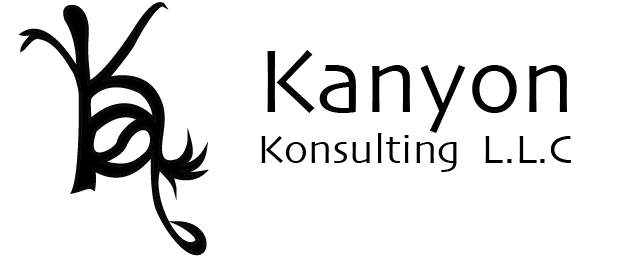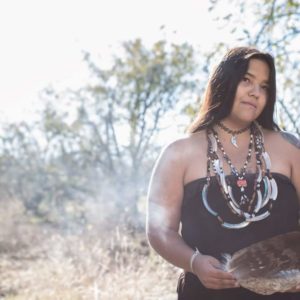
FIRST MUSEUM EXHIBITION OF ITS KIND EXPLORING CALIFORNIA’S LGBTQ+ HISTORY AND CULTURE TO OPEN AT OAKLAND MUSEUM OF CALIFORNIA IN APRIL 2019
Queer California: Untold Stories Will Combine Art and History to Tell Under-Recognized Stories of LGBTQ+ Communities, Exhibition to run April 13–August 11, 2019 in OMCA’s Great Hall
Source: http://museumca.org/gallery/queer-california-untold-stories
In Spring 2019, the Oakland Museum of California will present a major exhibition exploring California’s LGBTQ+ history and culture. Going beyond mainstream narratives, Queer California: Untold Stories will deepen and expand our understanding of this history through a multifaceted exhibition. Visitors will experience powerful examples of social activism through contemporary artwork and historical materials and view rarely-seen artifacts, archival documents, photographs, costumes, and ephemera such as zines, stickers, and flyers. The exhibition aligns important milestones in LGBTQ+ culture with lesser-known stories, focusing on a diversity of queer identities, civil rights, and resistance to oppression.
Visitors themselves can share the locations and groups in California that have been a part of their personal experiences in a participatory gallery display that reflects the range of the state’s queer history and the places that those outside of the norm may have found that they fit in. Queer California presents a future of possibility; through themes of memory, mourning, anger, desire, and hope, this exhibition draws on histories of struggle for self-determination to help us imagine a more inclusive future. There is a $4 charge for this special exhibition in addition to regular Museum admission.
More details can be found in the following press release.
(OAKLAND, CA) December 12, 2018— In April 2019, the Oakland Museum of California (OMCA) will present a major exhibition combining art and history to tell the untold and under-recognized stories of California’s LGBTQ+ communities. Going beyond mainstream narratives, Queer California: Untold Stories will be the first museum exhibition of its kind to deepen and expand our understanding of this history through a multifaceted and interactive experience, providing the opportunity for museum visitors and members of the LGBTQ+ community to add their voices and stories to the conversation.
“At this very tumultuous time in our country, many marginalized communities feel that threats to their basic rights are on the rise. This exhibition is needed now more than ever not only to share messages of hope and change, but also provide a deeper understanding of the complex history and important lesser-known stories of LGBTQ+ communities in California,” said Christina Linden, Exhibition Curator. “Queer California will address issues close to the hearts of many visitors who identify as queer, as well as other visitors who have felt like outsiders in mainstream culture.”
With transgender and LGBTQ+ rights increasingly in the news, the exhibition will be a timely opportunity to shine light on the history of California as a major site of LGBTQ+ community, culture, and politics. Queer California will explore a range of powerful stories through examples of social activism, contemporary artwork, historical materials, rarely-seen artifacts, archival documents, photographs, films and videos, costumes, and ephemera such as zines, stickers, and flyers.
The exhibition aligns important milestones in LGBTQ+ culture with untold stories, focusing on the diversity of queer identities, civil rights, and resistance to oppression. A timeline will help ground visitors in the key moments, movements, and figures in California’s LGBTQ+ history, as well as the organizations, events, and people not often mentioned in that history. This exhibition will draw on histories of struggle for self-determination to help us imagine a more inclusive future.
“OMCA continues its commitment to presenting programming that addresses topics of real relevance to our local community as well as urgent national themes that resonate today,” said Director and CEO Lori Fogarty. “Queer California will offer a space for visitors to learn, reflect, and see themselves represented in the powerful, untold stories of California’s LGBTQ+ communities.”
Upon entering the exhibition, visitors will encounter artist Yetunde Olagbaju’s luminous and uplifting video Universal Exchange, as well as the entrance to an adjacent screening room featuring LGBTQ+ films. Two profound objects will set the stage for the exhibition in a section titled What Gets Left Out, including the original eight-color rainbow flag designed by Gilbert Baker in 1978 situated nearby contemporary artist Amanda Curreri’s hand-dyed flag displaying two of the colors removed from the original design. Visitors will also encounter a recording by artist Eve Fowler featuring lesbian and trans Californians reading aloud from Gertrude Stein’s 1922 story about women in love that introduced the use of the word gay to mean homosexual. Black and white photographs, sculpture, drawings, and personal photo albums complete this section.
Several original works and commissioned pieces will be featured throughout the exhibition, including a new video featuring members of California native communities discussing stories of gender and identity in Native American culture. Artist Chris E. Vargas’ MOTHA (Museum of Trans Hirstory and Art) will serve as a mini-museum within the gallery, including materials representing significant events in this hirstory, such as the Compton’s Cafeteria Riot of 1966, and people who have challenged gender norms in the San Francisco Bay Area such as Lou Sullivan, José Sarria, Sylvester, Louise Lawrence, and Miss Major.
A section titled Places to Gather will highlight LGBTQ+ clubs and groups formed in California—particularly in the 1950s and 60s—through photographs, letters, pamphlets, buttons, clothing, and other ephemera, as well as periodicals, magazines, and journals from LGBTQ+ press. Photographs and a map by Kaucyila Brooke will indicate sites where lesbian bars have come and gonethroughout the Bay Area and Los Angeles. Photographs by Tammy Rae Carland will represent feminist and queer land projects in California, part of the back-to-the-land movement of the 1970s in which rural areas were occupied by those looking to flee urban areas. Many of these women-only enclaves and feminist retreats remain open today. Visitors will also be invited to sit on benches and car seats and listen to audio recordings in an interactive project by artist Kate Clark titled A Parkeology project, derived from the popular cruising site for San Diego’s LGBTQ+ community, Queen’s Circle.
In one of the final sections In the Body, materials and artwork related to self will be presented, including photography by Laura Aguilar, drawings by Julio Salgado, and films by Barbara Hammer and William E. Jones. A central interactive and social space for visitors—the Gaymes Lounge—will include the vintage games D.Y.K.E. (Do You Know Enough) and It’s Only Natural from 1986, and Rainbow Gayme from 1992.
Contemporary perspectives of the LGBTQ+ community will be explored in a section titled Retelling the Stories, include videos by Tina Takemoto and Patrick Staff, as well as photographs by Torreya Cummings. Through prompts and questions, visitors will be invited to share their feedback and responses related to these works that grapple with complex issues of identity, narrative, performance, and representation.
Toward the end of the exhibition, Fluid/Future will include contemporary sculpture, paintings, and drawings, as well as quotes from different members of the contemporary LGBTQ+ community expressing ideas about a queer future. A three-dimensional timeline will outline untold stories of California’s LGBTQ+ history alongside well-known events, including graphic displays, artifacts, personal photographs, and important documents. Visitors will be provided with an opportunity to gain a deeper understanding of California’s history by celebrating significant milestones while also acknowledging its many tragic stories, including a section about the AIDS Memorial Quilt. Open-ended questions will prompt visitors to consider what gets left out of this history and to imagine the possibility of what could be in the future.
Artworks in the exhibition include artists and collaborators Absolute Empress III Shirley, Chloe Aftel, Laura Aguilar, Tina Valentin Aguirre, D-L Alvarez, Steven Arnold, Gilbert Baker, Lisa Ben, Andrea Bowers, Kaucyila Brooke, Ginger Brooks-Takahashi, Craig Calderwood, Pat Campano, Monica Canilao, Tammy Rae Carland, Cassils, Jerome Caja, Wily Chavarria, Kate Clark, Torreya Cummings, Amanda Curreri, Cyclona, Rhys Ernst, Edie Fake, Eve Fowler, L. Frank, Clay Geerdes, Rick Gerharter, James Gobel, Nicki Green, James Gruber, Barbara Hammer, Mick Hicks, William E. Jones, Lenn Keller, Young Joon Kwak, Vero Majano, DJ Brown Amy (Amy Martinez), Jaguar Mary, Helen Nestor, Yetunde Olagbaju, Kari Orvik, Augie Robles, Grace Rosario Perkins, Marlon Riggs, Nica Ross, Julio Salgado, Patrick Staff, Chuck Stallard, Eric Stanley, A.L. Steiner, Sylvester, Tina Takemoto, Xara Thustra, Wu Tsang, Chris Vargas, Lex Vaughan, and Travis Y.
Queer California: Untold Stories will be on view in OMCA’s Great Hall April 13 through August 11, 2019. Historian and activist Susan Stryker and film historian Greg Youmans are consultants on the exhibition.
Queer California: Untold Stories is supported in part by the Oakland Museum Women’s Board.
The materials in the OMCA Press Room are made available to members of the media for non-commercial use in print and online promotion of permanent galleries, exhibitions and events. Any other use requires OMCA prior written permission. If you are downloading images, please include the appropriate photo and copyright attribution (found in Credits document in each press image gallery). Additional images are available by request. If you have any questions regarding the use or distribution of these materials, please contact Lindsay Wright at 510-318-8467 or lwright@museumca.org. If you are not a member of the media, please refer to OMCA’s Contact Us page to find the appropriate contact information for the party you hope to reach.


